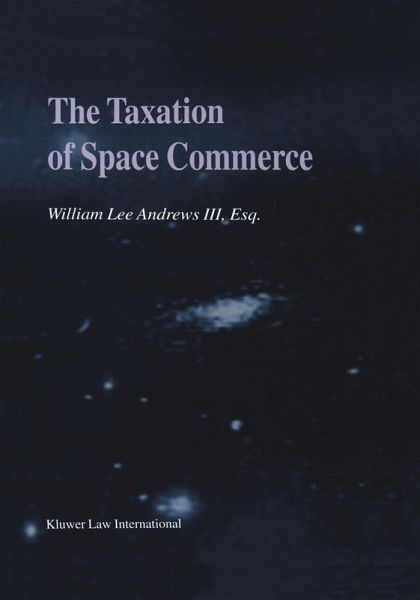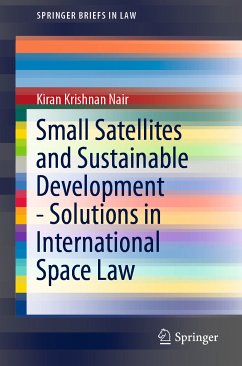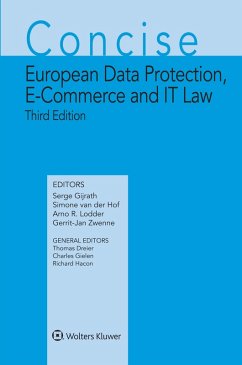
Taxation of Space Commerce (eBook, PDF)

PAYBACK Punkte
58 °P sammeln!
Outer space is in constant use. Most obviously, billions of "packets" of information travel through it every day, for the infinitely various purposes of countless people and organisations. Space platforms increasingly provide important research data for businesses, institutions, and governments. Taxation issues are inevitable. In fact, tax planners have for several years been engaged in designing tax incentives to enhance the development of space commerce.A significant focus of this extraordinary book is an in-depth evaluation of the current U.S. discussion of tax rules designed to stimulate s...
Outer space is in constant use. Most obviously, billions of "packets" of information travel through it every day, for the infinitely various purposes of countless people and organisations. Space platforms increasingly provide important research data for businesses, institutions, and governments. Taxation issues are inevitable. In fact, tax planners have for several years been engaged in designing tax incentives to enhance the development of space commerce.
A significant focus of this extraordinary book is an in-depth evaluation of the current U.S. discussion of tax rules designed to stimulate space commerce. For the first time such a debate is placed squarely in its complete context of historic developments and constraints, prevailing tax law (in this case the U.S. internal revenue code), and the body of international and national space law that began with the 1967 Space Treaty. Valuable comparative analysis is provided by examination of corresponding schemes evolving in Canada, Japan, Australia, and France.
Specific events, developments, issues, and probabilities dealt with in The Taxation of Space Commerce include the following:
As a major contribution to the literature of space law and tax law, The Taxation of Space Commerce fills an important need. Beyond that, it is a work of enormous value not only for taxation specialists and communications industry executives and their counsel, but for any enterprise with an eye to the not-too-distant future.
A significant focus of this extraordinary book is an in-depth evaluation of the current U.S. discussion of tax rules designed to stimulate space commerce. For the first time such a debate is placed squarely in its complete context of historic developments and constraints, prevailing tax law (in this case the U.S. internal revenue code), and the body of international and national space law that began with the 1967 Space Treaty. Valuable comparative analysis is provided by examination of corresponding schemes evolving in Canada, Japan, Australia, and France.
Specific events, developments, issues, and probabilities dealt with in The Taxation of Space Commerce include the following:
- . the economic significance of the Challenger launch in 1986;
- . the value of F.J. Turner''s classic "frontier" thesis for understanding the "new frontier" of space;
- . the Commercial Space Launch Act of 1984 (U.S.);
- . the role of the U.S. internal revenue code''s foreign tax credit:
- . the 1979 Moon Treaty;
- . remote-sensing and nuclear power;
- . the 1998 Inter-Governmental Space Station Agreement;
- . case law, especially Smith v. United States;
- . multinational vs. unilateral taxation schemes;
- . benefits of space commerce for society as a whole; and
- . competitiveness and economic efficiency.
As a major contribution to the literature of space law and tax law, The Taxation of Space Commerce fills an important need. Beyond that, it is a work of enormous value not only for taxation specialists and communications industry executives and their counsel, but for any enterprise with an eye to the not-too-distant future.
Dieser Download kann aus rechtlichen Gründen nur mit Rechnungsadresse in A, B, BG, CY, CZ, D, DK, EW, E, FIN, F, GR, HR, H, IRL, I, LT, L, LR, M, NL, PL, P, R, S, SLO, SK ausgeliefert werden.













